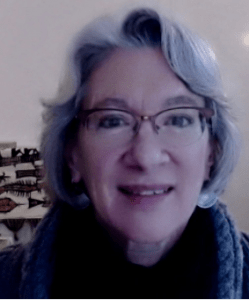 Judy Pace, Professor in the School of Education, has published a new book. It’s based on a cross-national study–funded by the Spencer Foundation–that examines teaching controversial issues, teacher educators’ methodology for teacher preparation, and novice teachers’ efforts in secondary classrooms. Pace was recently selected to be part of a pilot cohort of grantees in the Spencer Foundation’s Research Communications Grant Program, aimed at broadening the impact of research.
Judy Pace, Professor in the School of Education, has published a new book. It’s based on a cross-national study–funded by the Spencer Foundation–that examines teaching controversial issues, teacher educators’ methodology for teacher preparation, and novice teachers’ efforts in secondary classrooms. Pace was recently selected to be part of a pilot cohort of grantees in the Spencer Foundation’s Research Communications Grant Program, aimed at broadening the impact of research.
Teaching controversial issues in the classroom is now more urgent and fraught than ever as we face up to rising authoritarianism, racial and economic injustice, and looming environmental disaster. Despite evidence that teaching controversy is critical, educators often avoid it. How then can we prepare and support teachers to undertake this essential but difficult work? Based on a cross-national qualitative study, Hard Questions: Learning to Teach Controversial Issues, examines teacher educators’ efforts to prepare preservice teachers for teaching controversial issues that matter for democracy, justice, and human rights. It presents four detailed cases of teacher preparation in three politically divided societies: Northern Ireland, England, and the United States.
Pace developed a grounded theory that explains an organizing principle across teacher educators’ approaches called “contained risk-taking.” As a group, the teacher educators taught a set of eight strategies for exploring controversial issues in classrooms while containing the potential risks, such as classroom conflict, harm to students, and recriminations from parents or administrators. Contained risk-taking is particularly relevant for teaching controversial issues in a highly contentious and polarized political climate.
The book traces graduate students’ learning from university coursework into the classrooms where they work to put what they have learned into practice. It explores their application of pedagogical tools and the factors that facilitated or hindered their efforts to teach controversy. The book’s cross-national perspective is compelling to a broad and diverse audience, raising critical questions about teaching controversial issues and providing educators, researchers, and policymakers tools to help them fulfill this essential democratic mission of education.
In the following interview, Professor Judy Pace discusses her new book with Valentina Sarmiento, a recent graduate of the USF Master of Arts in Teaching (MAT) program. They talk about how the book speaks to the current political moment, differences in approaches to teaching controversial issues, and generative ideas for applying the book’s lessons to curriculum development and teaching in today’s classrooms.